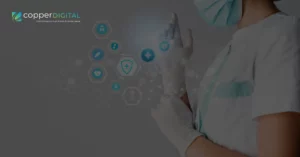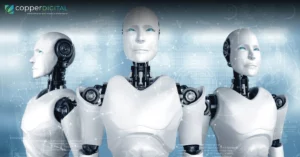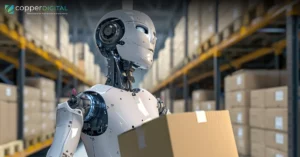Last week, we shared some thoughts about the future of the Internet. The Pew Research Internet Project canvassed 2,558 technology experts about what they expect to see from the World Wide Web by 2025. After collecting the answers, Pew analyzed the responses and grouped them into 15 central theses about where the Internet is headed over the next decade or so. Eight of the predictions are mostly positive, while seven of them aren’t quite so rosy. Here are the highlights of those findings as we see them.
“The Internet of Things, artificial intelligence and big data will make people more aware of their world and their own behavior”
The ability to track, record, integrate and make personal data actionable will completely revolutionize our “online” lives. We will no longer “go online,” we’ll simply be online, able to access whatever we want or need as we want or need it in the not-too-distant future. As the ability to capture and work with that data becomes less and less expensive, we draw closer to a world where we can monitor reams of data about ourselves and have our interconnected devices help us intuitively throughout our days.
“Augmented reality and wearable devices will be implemented to monitor and give quick feedback on daily life, especially tied to personal health”
We already covered this point in depth in part I of the blog post. But, suffice it to say that most of the major tech companies have made moves tacking strongly in this direction.
“The spread of the ‘Ubernet’ will diminish the meaning of borders, and new ‘nations’ of those with shared interests may emerge and exist beyond the capacity of current nation-states to control”
In the report, JP Rangaswami, chief scientist for Salesforce.com, nailed my sentiments exactly: “The problems that humanity now faces are problems that can’t be contained by political borders or economic systems. Traditional structures of government and governance are therefore ill-equipped to create the sensors, the flows, the ability to recognize patterns, the ability to identify root causes, the ability to act on the insights gained, the ability to do any or all of this at speed, while working collaboratively across borders and time zones and sociopolitical systems and cultures. From climate change to disease control, from water conservation to nutrition, from the resolution of immune-system-weakness conditions to solving the growing obesity problem, the answer lies in what the Internet will be in decades to come. By 2025, we will have a good idea of its foundations.”
We’re living in a post political world in the sense that we are rarely defined by our country of residence anymore — we are far more driven as individuals by our self-selected digital identity. We group together with those interested in similar things and define ourselves by those groups, instead of the place in which you simply happened to be born.
“An Internet-enable revolution in education will spread more opportunities, with less money spent on real estate and teachers”
The consumer-aloof business model for higher education is a ticking time bomb. Costs are skyrocketing out of control while the marginal value for a college degree outside the top 20 or 30 schools is not that high when measured against the level of debt accrued by many, if not most, students to achieve their bachelor’s. The business model has gone stale and is ripe for disruption; the Internet will be the vehicle of that disruption. Sure, the college experience is great, but it’s too expensive for many people to attain. But, the Internet will provide far more opportunities to access education without having to incur the burden of hefty student loan debts.
For all the positivity about the future of the Internet, the report also detailed some less-than-rosy predictions about what will happen in the future:
“Dangerous divides between haves and have-nots may expand, resulting in resentment and possible violence.”
As the speed of technology increases, people that can harness it have the ability to succeed and profit in a way that most normal consumers cannot. This could possibly lead to a widening income gap that breeds jealousy and resentment.
“People will continue — sometimes grudgingly — to make tradeoffs favoring convenience and perceived immediate gains over privacy; and privacy will be something only the upscale will enjoy.”
We’ve already seen signs of this with the NSA data collection scandals. The technology companies we trust with our data have access to so much information about us now, we’ve essentially ceded privacy rights to these corporations. The flip side of the Internet of Things is that we’re opening more and more data up to these corporations, which have not always been the best stewards of that information.
Overall, though, the positive theses about the future of the Internet outweigh the negative, both in volume and persuasiveness. Sure there are things to be concerned about, but there are so many bright things to look forward to — both as a consumer and as an enterprise. Here’s to the next 11 years being even more beneficial than the last 25 thanks to the World Wide Web.





